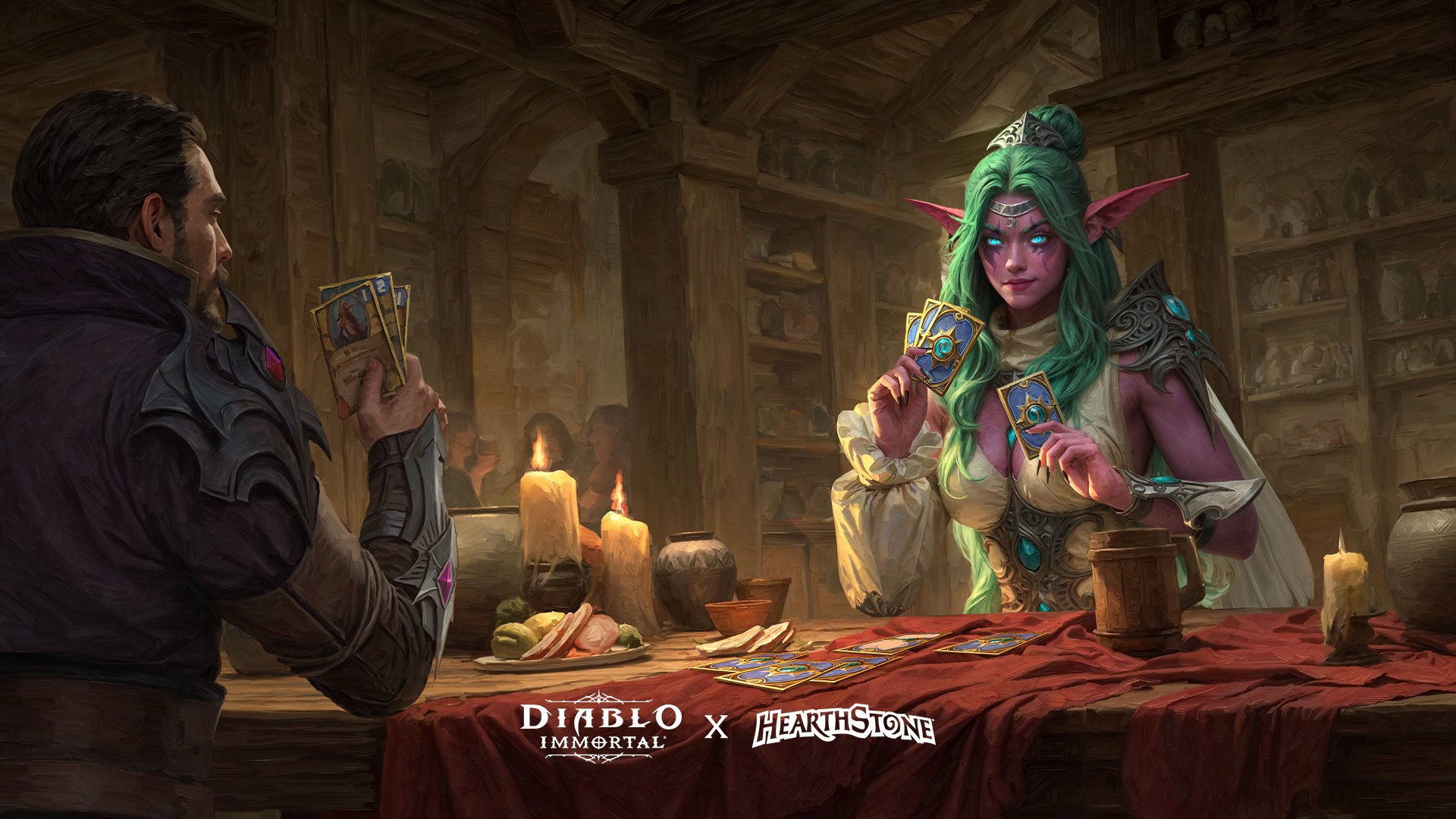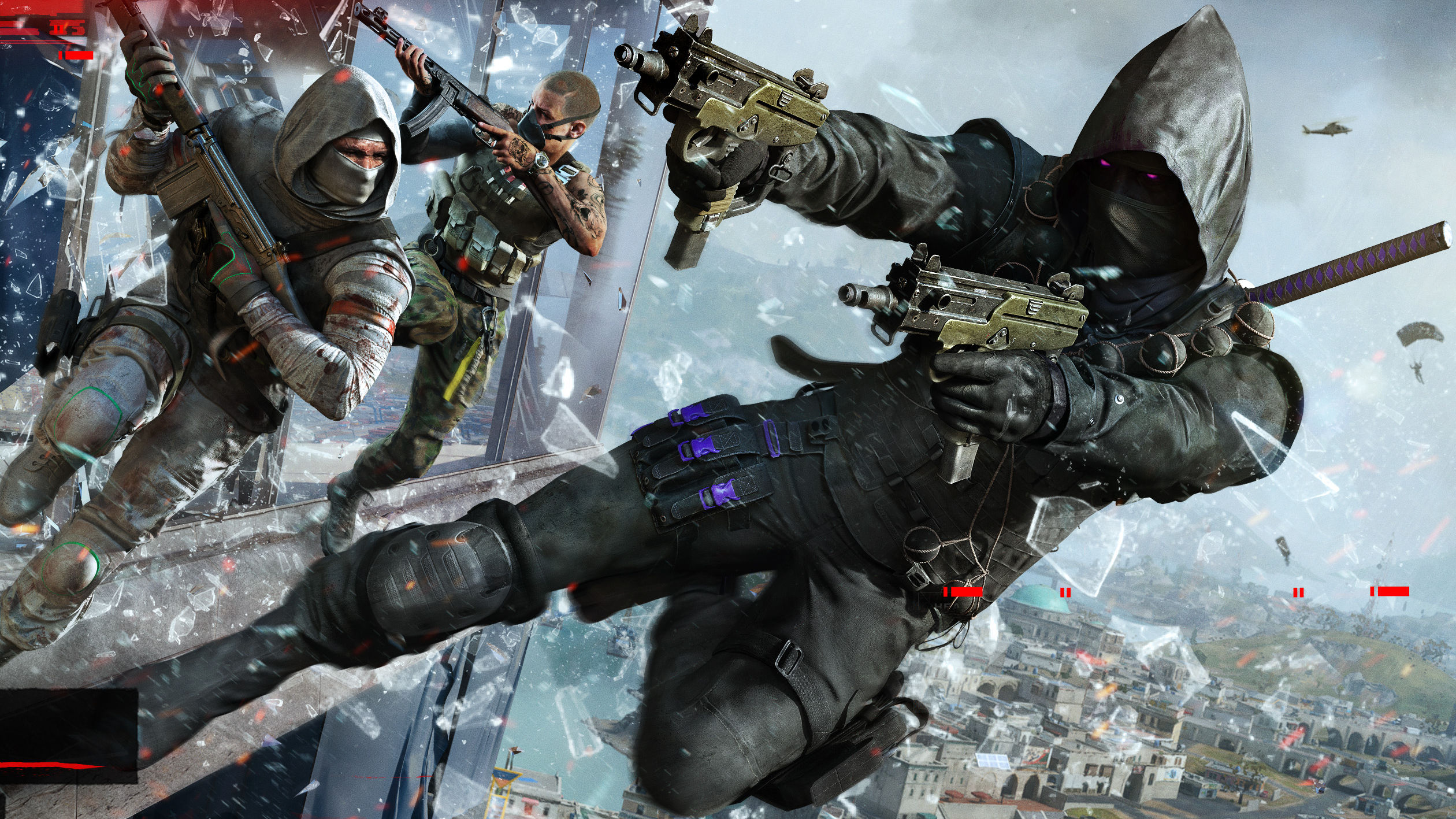Activision once again draws the ire of players for new Diablo Immortal marketing that appears to have been made with generative AI
Eagle-eyed followers spotted melting necklaces, sloppy playing cards, and questionable anatomy in the Diablo Immortal x Hearthstone crossover marketing — once again sparking the debate about the use of generative AI in gaming.

All the latest news, reviews, and guides for Windows and Xbox diehards.
You are now subscribed
Your newsletter sign-up was successful
Fans of Diablo Immortal are not happy about the use of generative AI in the game's latest marketing materials. The official Diablo Immortal account shared a new image on social media announcing the mobile game's crossover with Hearthstone for a limited-time event.
Activision Blizzard clearly misjudged how closely the communities of those games would scrutinize the marketing imagery. Reports from Eurogamer and PC Gamer both drew attention to a Reddit post from user Ipyreable, who pointed out the trademark tells of generative AI in the image on the Hearthstone subreddit.
Find a seat if you can. Diablo Immortal x @PlayHearthstone. Coming Soon. pic.twitter.com/NWbzEujMRyJuly 21, 2025
The player had marked up the marketing image with red text to highlight the issues: a weirdly shaped ear on the male character featured to the left of the image, his hand fading strangely into the background behind it, and a warped moon charm on the character featured to the right.
There was more, though. Candles were lit but not with flames, while the wax featured an unusual melting pattern, and bread lay haphazardly on the game table with no plate.
The strangest of all was a card that seemingly featured the Hearthstone board across its face, as opposed to an actual playable card front.
Additional marketing materials for the event, also posted on Blizzard social media platforms, feature images with giveaway signs that they could be the products of generative AI, as well.
Activision Blizzard King is no stranger to using generative AI. Blizzard caught heat previously for releasing an in-game skin that featured work from an artist known to use generative AI. The skin itself was suspected to have been created via prompt, but Blizzard never confirmed it. It did, however, remove the skin from the game.
All the latest news, reviews, and guides for Windows and Xbox diehards.
Activision has also taken hits from the Call of Duty community over the use of generative AI in marketing materials. Call of Duty: Black Ops 6 doled out AI-generated images as rewards for seasonal events and as part of paid bundle items.
Steam's disclosure policy ultimately pushed the publisher into declaring that the developers had used generative AI at some point in the development process.
But admitting AI's usage isn't admitting defeat, as far as Activision Blizzard King is concerned. The publisher is under the Microsoft umbrella, and Microsoft has unapologetically pushed all of its chips into the AI pot.
Microsoft has gone so far as to lay off large numbers of employees to bolster its investment in generative AI, and Activision has proudly posted job listings seeking artists willing to incorporate generative AI into their work.
Corporations are hellbent on generative AI, even as problems with the practice mount
With as much money as Microsoft has thrown at generative AI, it would be insane for the company not to require its underlings to utilize the technology to its fullest. However, continuing to lean into the use of generative AI comes with the risk of alienating a game's player base.
While AI may seem useful for generating random textures or other minuscule details that may be missed by a large part of the player base, it still runs into other potential issues.
Generative AI tech does little more than gobble up existing creations and regurgitate them back out in a new arrangement. It's not truly capable of creating anything new. Copyright infringement because of generative AI is not just limited to affecting the artist whose creations are initially fed into the machine, either.
There are no measures in place to protect the original artists, nor is there anything to ensure that companies like Activision Blizzard King can keep its own copyrights in play when generative AI has been used to craft images of trademarked IPs.
Despite the legal gray area, companies like Microsoft and OpenAI continue to insist on the takeover of generative AI, even highlighting the jobs that could disappear because of the advances of artificial intelligence.
Video games are an art form that tell human stories with human emotions based on human experiences — something generative AI simply cannot replicate.

Cole is the resident Call of Duty know-it-all and indie game enthusiast for Windows Central. She's a lifelong artist with two decades of experience in digital painting, and she will happily talk your ear off about budget pen displays.
You must confirm your public display name before commenting
Please logout and then login again, you will then be prompted to enter your display name.


